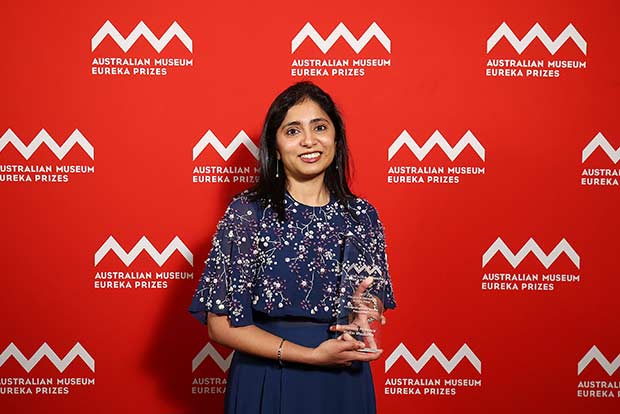Begin typing your search...
Chennai-born scientist wins Science Oscars with wearable tech
Madhu Bhaskaran recently won the Oscars of Australian Science, becoming possibly the first Indian woman to receive this recognition.

Chennai
An Associate Professor at RMIT University in Sydney, she received the 2017 Macquarie University Eureka Prize for Outstanding Early Career Researcher.
Born and brought up in Chennai, Madhu Bhaskaran shifted to Melbourne as an international student in 2004, to pursue a Masters degree in Micro-Electronics.
“The intention was to return home after completing my degree. But once here, I got an opportunity to try my hand at making small electronic devices in the labs. I did my Bachelors in Electronics and Communication at PSG College of Technology and that did give me plenty of opportunity to do some electronics based experiments because the subjects they taught were very much on a par with international standards.
However, RMIT was one of the very few universities in Australia which had clean room laboratories, where you can make electronic chips at the micron-level (1/1000th of a millimeter). I never had that opportunity in India and it excited me. Later, because I received an international scholarship to undertake a PhD degree, followed by a post-doctoral fellowship, I decided to stay back,” explains Madhu. Her research area is wearable electronics.
“It’s much like Fit Bits and smart watches that people wear these days, only that our devices are less clunky and integrate easily with the skin. For example, I’ve worked on a device that miners could use as a gas sensor to detect whether the amount of dangerous gases present in the air at a particular time in a particular area is too high. This is a safer option compared to the present gas detectors installed in mine walls because of its accuracy.
Similarly, a sensor could be worn by beach-goers to measure the UV exposure they’ve had on that day and act accordingly to prevent skin cancer risk.
As an electronics engineer, my job is to turn things from science fiction to reality. It is a futuristic field, where we look at the world 30-40 years ahead. So while I know that I will not be the one to do it, I would consider it a great success if some of the tech that I’m working on at the moment becomes available in the market for everyday use in another 10-15 years,” says Madhu.
Madhu could possibly be the first Indian origin woman to win the prize. “These awards have been given under different category names for different years and while the award administrators do not collect original nationality information, they have indicated that I could possibly be the first woman of Indian origin to win the prize,” says Madhu.
Interestingly, Madhu’s husband, Sharath, also won the award last year. “But they are in different categories. Mine was for Outstanding Early Career Researcher while Sharath won it in Emerging Leader in Science category. His research is in developing micro-chip technology where memory cells mimic human brain activity.
His award was also for leadership aspects in establishing a large-scale research facility and contributions to national level science policy,” she clarifies.
Visit news.dtnext.in to explore our interactive epaper!
Download the DT Next app for more exciting features!
Click here for iOS
Click here for Android
Next Story



